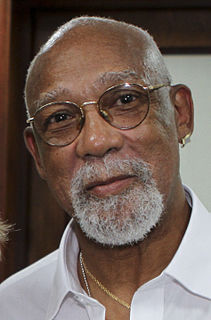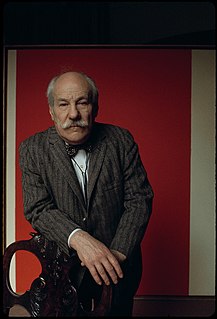A Quote by William F. Buckley, Jr.
Norman Mailer decocts matters of the first philosophical magnitude from an examination of his own ordure, and I am not talking about his books.
Quote Topics
Related Quotes
It's always an interesting question of what was it like as Norman Mailer's son because I could easily turn it back and say what's it like not to. I didn't always realize my dad was Norman Mailer. I always knew he was Dad, and then I forget the exact age when it dawned on me that, you know, he is actually someone who affects the public consciousness of the time. It was amazing. I mean he was a rock star and brilliant and kind and funny and generous and scary when he needed to be and, you know, hard as a father.
Samuel Beckett is the person that I read the most of - certainly the person whose books I own the most of. Probably 800 or 900, maybe 1,000 books of just Samuel Beckett. By him, about him, in different languages, etc. etc. Notebooks of his, letters of his that I own, personal letters - not to me, but I bought a bunch of correspondence of his. I love his humor, and I'm always blown away by his syntax and his ideas. So I keep reading those.
Ben remembered reading about curators in "Wonderstruck", and thought about what id meant to curate your own life, as his dad had done here. What would it be like to pick and choose the objects and stories that would go in your own cabinet? How would Ben curate his own life? And then, thinking about his museum box, and his house, and his books, and the secret room, he realized he'd already begun doing it. Maybe, thought Ben, we are all cabinets of wonders.
My father, Norman Mailer, expected a lot from us and he really pushed us and you know one of his favorite lines was, "If you think I'm being hard on you, wait until life hits you because life is a hell of a lot tougher than I am." And I took everything he said to heart. He taught me how to write, which was scary and intimidating and hard, but ultimately one of the biggest gifts I could have ever asked for.































